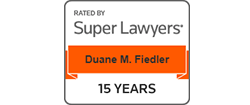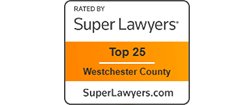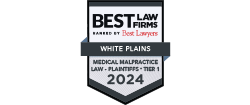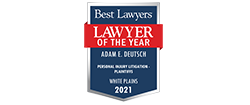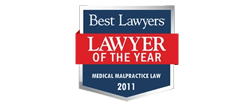Negligence laws in New York play a crucial role in determining liability and seeking compensation in various personal injury cases, including car accidents, slip and falls, and medical malpractice.
What is Negligence?
Negligence is a legal concept that refers to the failure to exercise reasonable care in a given situation, resulting in harm or injury to another person or their property. In the context of personal injury law, negligence forms the basis for many claims and lawsuits. To establish negligence, typically four elements must be proven:
Duty of Care
The defendant (the person alleged to be negligent) must owe a legal duty of care to the plaintiff (the injured party). This duty is often based on the relationship between the parties or the circumstances surrounding the situation.
Breach of Duty
The defendant must have breached the duty of care owed to the plaintiff. This means they failed to act with the level of care that a reasonable person would have exercised in similar circumstances.
Causation
There must be a direct connection between the defendant’s breach of duty and the harm suffered by the plaintiff. The plaintiff must show that the defendant’s actions (or failure to act) were a substantial factor in causing the injuries or damages.
Damages
The plaintiff must have suffered actual harm or damages as a result of the defendant’s negligent actions. Damages can include physical injuries, emotional distress, property damage, medical expenses, loss of income, and other losses.
Pure Comparative Negligence
New York follows a pure comparative negligence law, which allows plaintiffs to recover compensation regardless of whether they contributed to the accident as long as they are not 100% responsible. However, the amount of compensation is reduced proportionally to their percentage of fault.
For example, if a plaintiff is determined to be 30% at fault for an accident, their compensation will be reduced by 30%. This principle acknowledges that multiple parties may contribute to an incident and ensures that each party is held accountable based on their level of responsibility.
Joint and Several Liability
In cases involving multiple defendants, New York applies joint and several liability. This means that each defendant is individually responsible for the full extent of the plaintiff’s damages. If one defendant cannot pay, the other(s) can be held responsible for the entire amount.
No-Fault Insurance System
New York operates under a no-fault insurance system for car accidents. In minor accidents, each party’s insurance typically covers their medical expenses and damages, regardless of fault. However, serious injuries or damages exceeding a certain threshold allow the injured party to step outside the no-fault system and pursue a personal injury lawsuit.
Vicarious Liability
Vicarious negligence refers to a legal concept where one party may be held responsible for the negligent actions of another, typically an employee or agent, even if the responsible party did not personally commit the negligent act.
This doctrine is often applied in employer-employee relationships, holding employers liable for the negligent actions of their employees performed within the scope of their employment. For instance, if a car accident occurs while the employee is carrying out work-related duties.
Strict Liability
Strict liability is a legal doctrine that holds individuals or entities responsible for certain actions or activities, regardless of fault or intent. In cases of strict liability, negligence or wrongdoing doesn’t need to be proven for liability to be established.
In New York, strict liability can apply to various situations, but most commonly, those involving dangerous products or dog bite injuries. In these scenarios, the manufacturer or dog owner can be held strictly liable for the harm caused.
Speak to an Attorney Today
Determining how negligence laws apply to your case and proving another party was negligent in causing your harm can be challenging. To discuss your situation with a trusted Westchester County personal injury attorney or White Plains personal injury lawyer in a free consultation, call (914) 993-0393 or message us online today.
 Because Relationships Matter
Because Relationships Matter 



